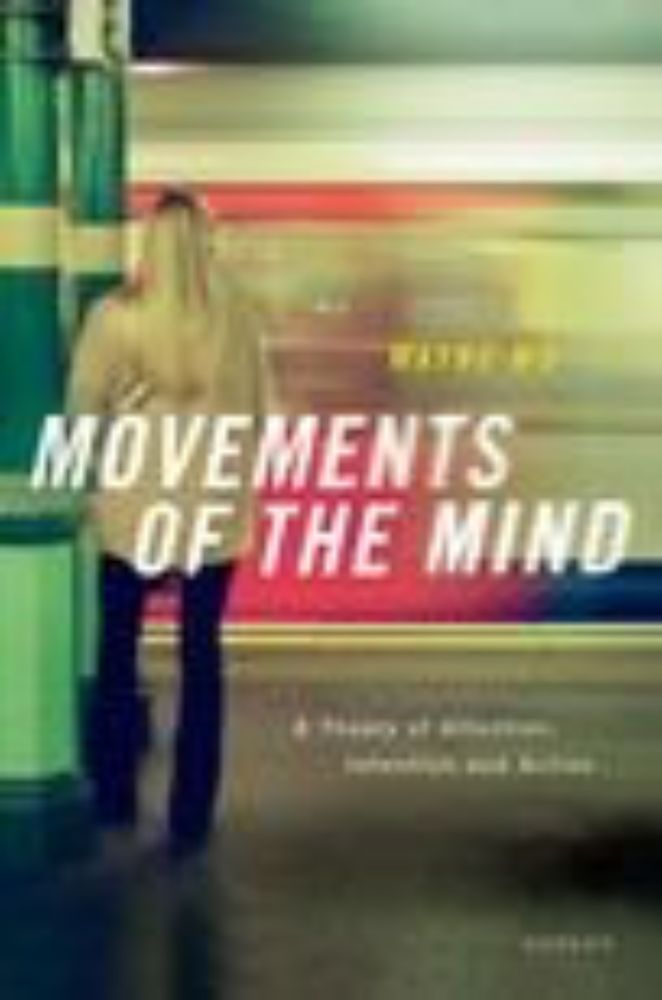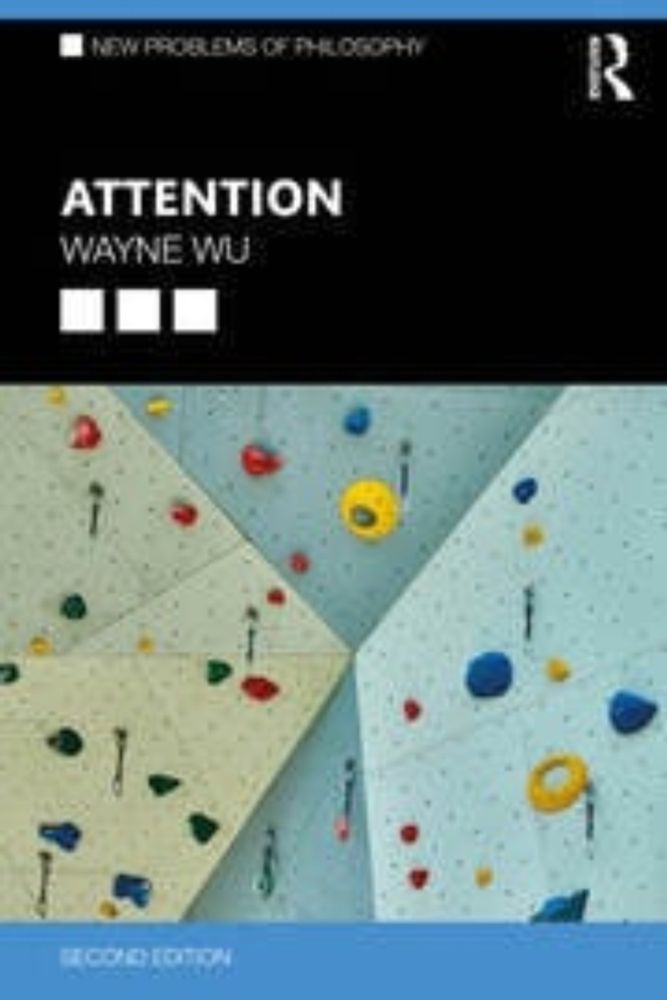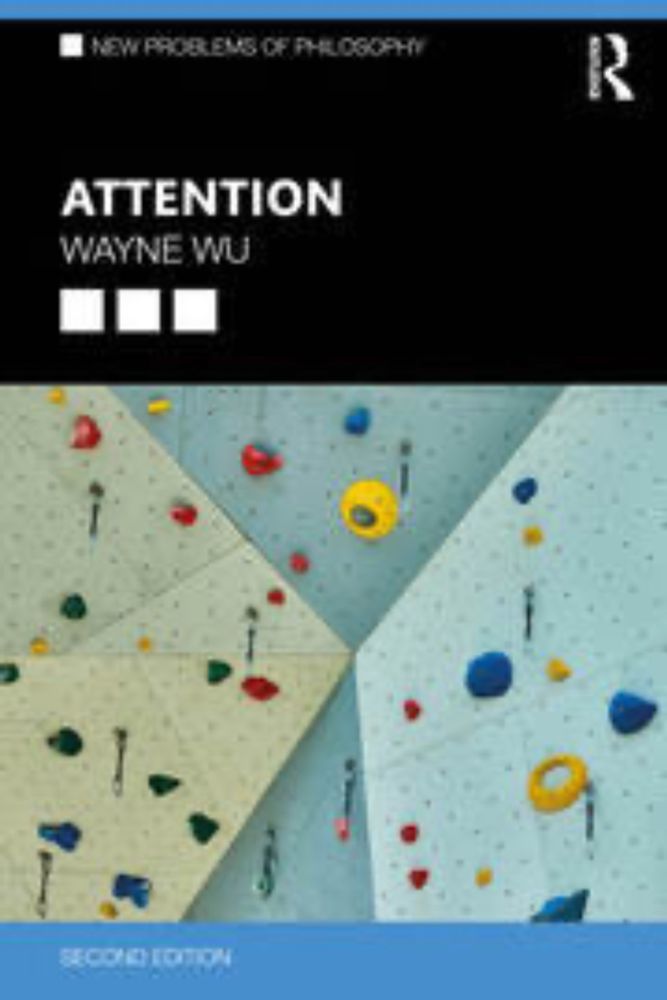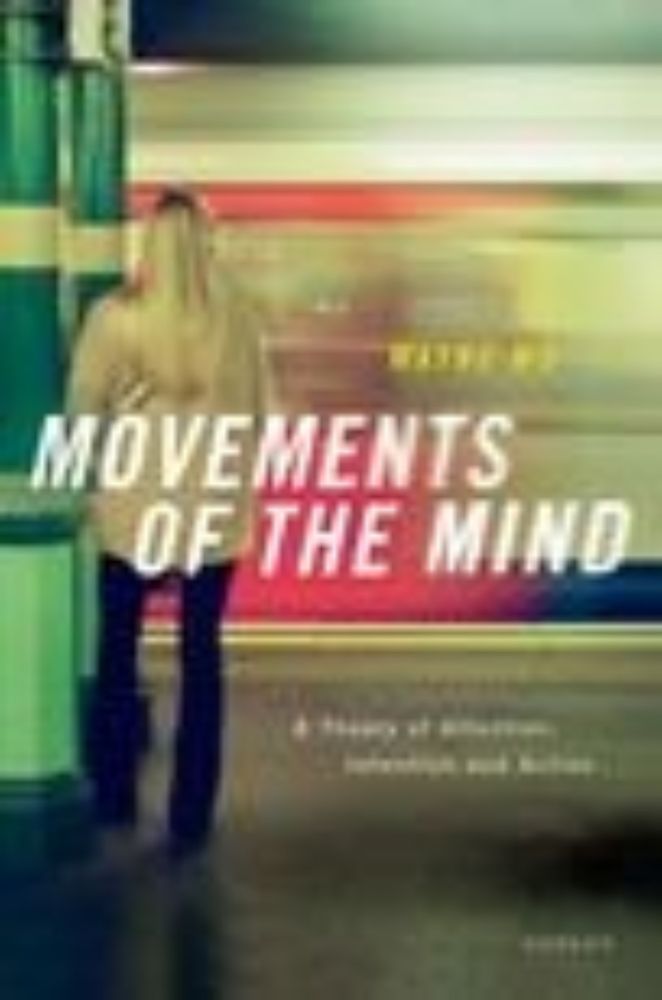Does anyone know who first used the terms "top-down" versus "bottom-up" for attention? Or if endogenous versus exogenous came first, who used that first? Or for any other term. A reference would be awesome.
30.05.2025 18:52 — 👍 0 🔁 0 💬 0 📌 0
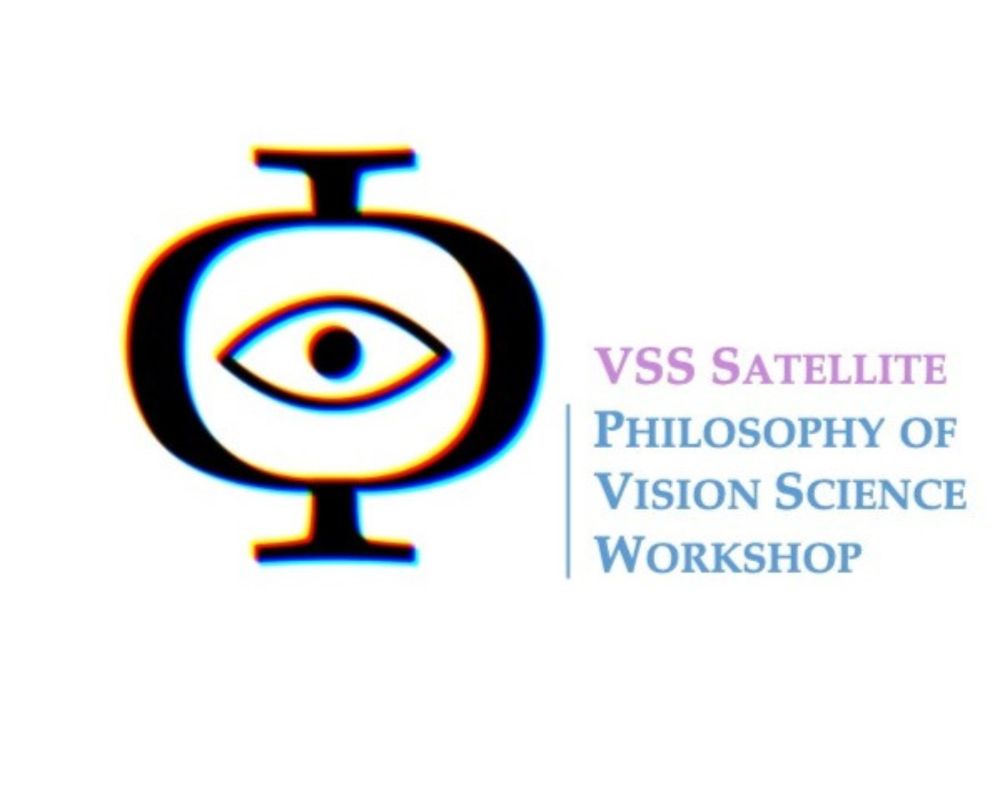
Home | phiVis
I'm so sorry not to be at this event in person, but this is a great workshop, where philosophers of perception and vision scientists meet in dialog. This afternoon at 1:15pm EST. Check out the line-up and RSVP for on-line attendance.
www.phivis.org
20.05.2025 12:23 — 👍 5 🔁 0 💬 0 📌 0
Ach! Sorry for that. We're bound by availability of space at the center. One thing we aim in our workshop is to have a very strong neuroscience presence, and to create a space for serious dialog between philosophy and neuroscience.
19.04.2025 20:22 — 👍 2 🔁 0 💬 0 📌 0
Thanks for the hashtags, Keith!
19.04.2025 20:20 — 👍 1 🔁 0 💬 0 📌 0

A Population Doctrine in Neuroscience Workshop
A Population Doctrine in Neuroscience Workshop (Call for Papers)
We are pleased to announce an interdisciplinary 2-day workshop held at the Center for Philosophy of Science at the University of Pittsb...
An upcoming philosophy of neuroscience conference CFP. The organizers strongly encourage submissions from neuroscientists doing population recording, & in particular short talks that draw on ongoing research to address the theoretical questions highlighted in the CFP:
philevents.org/event/show/1...
16.04.2025 16:46 — 👍 19 🔁 3 💬 2 📌 0

Episode 97: Intention and Memory with Wayne Wu
The Free Will Show · Episode
Thanks to Taylor Cyr and Matt Flummer for chatting about intention & memory. We talk about intention as memory & intending as remembering, forgetting what we're doing when we cross a threshold, and why research on working memory is research on intention.
open.spotify.com/episode/7gK0...
15.04.2025 23:05 — 👍 4 🔁 1 💬 1 📌 0
Wu. Commentary on Rosenholtz BBS .pdf
Here's my commentary on Ruth Rosenholtz's BBS article on attention in crisis. I bring out a different (familiar) view of what the crisis is and suggest one way to ban attention from cog neuro: stop fallaciously identifying attention w/ a mechanism. Attention is the explanandum.
bit.ly/WuCRISIS-BBS
17.03.2025 17:28 — 👍 3 🔁 1 💬 1 📌 0
The homunculus-inner ruler and all that I suspect (@sophisteuein.bsky.social). Within a well-defined neural network, ok. Would be interesting to track its development in neuroscience but we should question the usefulness of this division wrt psychological categories (e.g. "goal" as bias).
20.12.2024 19:17 — 👍 1 🔁 0 💬 1 📌 0
I would not advocate for a technical vocabulary that had as serious entries"top-down" and "bottom-up". Conceptual crutches, obfuscating.
20.12.2024 14:51 — 👍 3 🔁 0 💬 2 📌 0
I'm being slightly facetious here, but was it a single highway bottom to top? Perception on the ground floor, thought on the top? Nothing else?
The metaphor caught like wild fire (ok, mixing my metaphors). Maybe it was honest psycho-geography but why?
Historians of cognitive science, any ideas?
20.12.2024 14:51 — 👍 4 🔁 0 💬 2 📌 0
I'm writing lecture notes reading a certain influential paper whose general point I agree with...so I might put up random comments on it or related questions.
Who came up with top-down vs bottom-up? What architecture did they have in mind to ground a direction? What about lateral modulation?
20.12.2024 14:46 — 👍 17 🔁 1 💬 2 📌 0
As part of "technicalization", I propose a logical structure for attention: m-attention to T for R, mode (m), target (T), and response (R).
So top-down, whatever it means (another issue!) is the mode, information is the target. R can be updated belief/credence/posterior, motor response etc.
20.12.2024 14:38 — 👍 1 🔁 0 💬 1 📌 0
How about: selection of information to guide behavior, with "behavior" understood broadly to include judgments, updating beliefs, forming memories as well as typical body stuff (orientation, movement)? Then, difference disappears.
20.12.2024 14:30 — 👍 1 🔁 0 💬 1 📌 0
This is, of course, a point about a term/concept, but the issue is not fussing about words...it's noting a problem in theorizing about attention. We should develop *technical* notions uniformly used in the field (cf. Shannon on "information" and information).
20.12.2024 14:24 — 👍 1 🔁 0 💬 0 📌 0
A not helpful concept in the theory of attention: *attentional control* as in e.g., top-down attentional control.
1. Is it a type of control *of* attention?
2. Is it attention a controller *of*...?
Two different psychological phenomena, collapsed in an unhelpful, all-too-common, conceptualization.
20.12.2024 14:23 — 👍 3 🔁 0 💬 2 📌 0
Attention by Wayne Wu: https://doi.org/10.21428/e2759450.3ce3f8af
09.10.2024 12:00 — 👍 2 🔁 2 💬 0 📌 0
Hi Keith. Weird. No ebook is listed. I'll ask (alas, I didn't make it to Ireland, but will be in touch about hopefully connecting with you next year).
25.11.2024 22:36 — 👍 1 🔁 0 💬 1 📌 0
I made a starter pack to follow your favorite WomWoMs (Women of Working Memory)
go.bsky.app/78fcoth
You can ping me to be added!
25.11.2024 16:25 — 👍 69 🔁 28 💬 6 📌 2
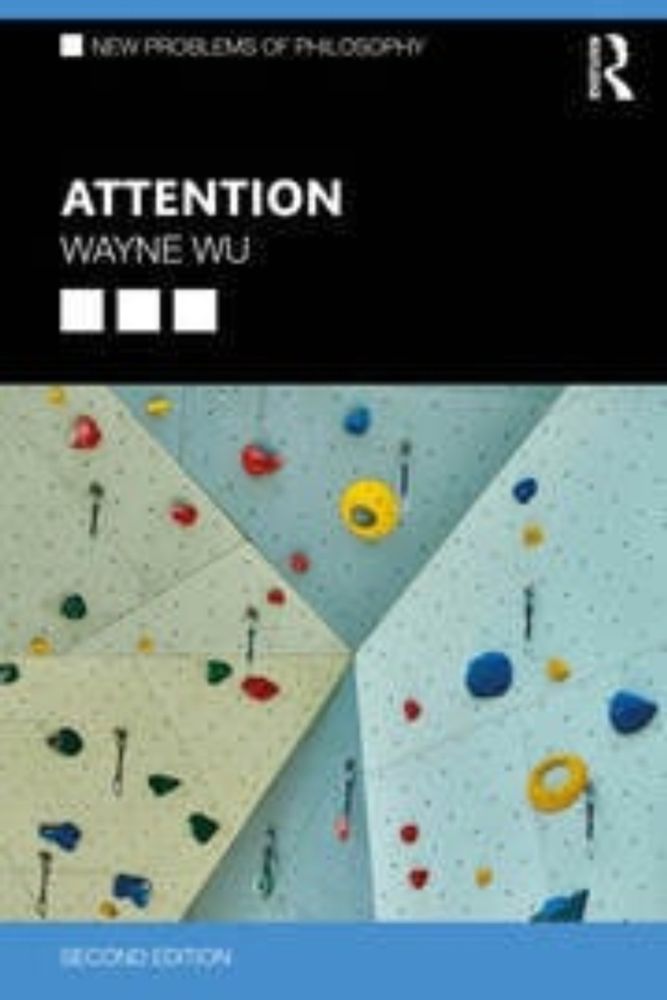
Attention
Wayne Wu’s Attention was the first book to provide a systematic overview and assessment of different empirical and philosophical works on attention. In this revised and expanded second edition Wu disc...
I rewrote Attention (2nd edition) in to engage scientists AND philosophers on attention. I am an optimist not skeptic: we deeply understand attention. I show why (and how) and discuss philosophical consequences. The book is currently discounted & due in late Dec.
www.routledge.com/Attention/Wu...
25.11.2024 21:54 — 👍 11 🔁 1 💬 1 📌 1
1st 2 chapters of my book still free from Oxford UP. The book is expensive so if you know someone who would be interested in an emiprical-philosophical account of agency, attention and their relation, point them to the free download (soon gone). Please repost:
academic.oup.com/book/46088?s...
03.04.2024 14:03 — 👍 2 🔁 0 💬 0 📌 0
Does attention gates consciousness? Come to discussion in 20 minutes links below. Some great work. I will critically discuss.
Neural Mechanisms Online
(website)
Friday 22 March 2024
Webinar
h16-18 CET / h15-17 GMT
(check your local time here)
Join at:
unito.webex.com/unito-en/j.p...
22.03.2024 14:43 — 👍 1 🔁 1 💬 0 📌 0
Hard to feel that this matters much given what's happening in the world...but if you need a break and want to hear about the nature of agency and mental action I'll be blogging about my book at brainsblog next Monday (chp 1 will be available).
philosophyofbrains.com
academic.oup.com/book/46088?s...
05.03.2024 14:24 — 👍 6 🔁 3 💬 0 📌 0
I've helped organize the following event with Jackie Gottlieb from Columbia and Raphael Rosenberg, an art historian from Uni Wien at the Italian Academy at Columbia. Please come if you can! Do register (we need a head count)!
italianacademy.columbia.edu/events/atten...
15.02.2024 19:34 — 👍 0 🔁 0 💬 0 📌 0
Any suggestions for a gentle introduction to the biology of habits and of addiction? Accessible, with some guideance, to undergraduates with little biology.
16.01.2024 15:41 — 👍 0 🔁 0 💬 0 📌 0
Lots of great books available at OUPPhilosophy at a substantial discount.
Want to understand what agency is, the role of attention, intention and memory and how the mind moves, tied to the neurobiology? Apply 40% discount EXAPAE24 to this book:
global.oup.com/academic/pro...
15.01.2024 18:06 — 👍 1 🔁 1 💬 0 📌 0
News, commentary and research coverage from the international monthly journal publishing the highest quality of work in all areas of neuroscience.
https://www.nature.com/neuro/
Neuroscientist at U Chicago
UF Assistant Professor. Attention, Perception, Consciousness.
Professor of Psychology & Neuroscience at Duke University. Studying cognitive control, loving lots of other stuff.
www.egnerlab.org
peer reviewed journal published by MIT Press. JoCN publishes papers that bridge the gap between descriptions of information processing and specifications of brain activity. neuropsychology, experimental psychology, neurology, computational modeling, AI ..
Professor of Cognitive Neuroscience at the FIL, UCL, using human neuroimaging to study how our prior knowledge influences the way we perceive the world. https://www.fil.ion.ucl.ac.uk/team/visual-perception-team/
I study brains and sometimes use one.
https://www.alylab.org/
Professor of Computational Neuroscience and Psychiatry, Aarhus University. PI @ the Embodied Computation Group. We study perception, interoception, & metacogniton.
https://www.the-ecg.org
Slowly becoming a neuroscientist.
EiC @elife.bsky.social
Neuroscience,Insular cortex
I do not reply to direct messages
Twitter @leafs_s
mastdon @leafs_s@mstdn.science
An online-only journal publishing Reviews, Perspectives & Comments across psychology, its applications & societal implications. Tweets from the editors. https://www.nature.com/nrpsychol/
assoc prof, uc irvine cogsci & LPS: perception+metacognition+subjective experience, fMRI+models+AI
meta-science, global education, phil sci
prez+co-founder, neuromatch.io
fellow, CIFAR brain mind & consciousness
meganakpeters.org
she/her 💖💜💙 views mine
Cognitive neuroscience, affect and cognition, participatory sensemaking through food and dance
Professor of Philosophy, Psychology and Neuroscience at Duke University. Director of the Imagination and Modal Cognition Lab - www.imclab.org. Pun aficionado. (he/him/el) 🇨🇴
Asst Professor Psychology & Data Science @ NYU | Working on brains & climate, separately | Author of Models of the Mind: How physics, engineering, and mathematics have shaped our understanding of the brain https://shorturl.at/g23c5 | Personal account (duh)
Psychologist and neuroscientist at UCL https://metacoglab.org
Author, Know Thyself (2021) https://metacoglab.org/book
Dad and assistant to the Diplomat
Depts. of Psychology & Psychiatry, U. Wisconsin–Madison
Editor-in-Chief, Journal of Cognitive Neuroscience
Director, Psychology Research Experience Program (summer program for URM/low-income/1st-gen undergrads)
Cognitive scientist studying how we see + think @ Johns Hopkins University. 🇨🇦
Lab: https://perception.jhu.edu/
Academic, cognitive & vision scientist, computational modeller, cofounder @neuromatch Academy, He/His. This is a personal account.
PI of the https://imaginerealitylab.org/ @uclbrainscience.bsky.social where we investigate the neural and computational mechanisms of mental imagery and reality monitoring. Activist about mental health and EDI in academia. She/her.



